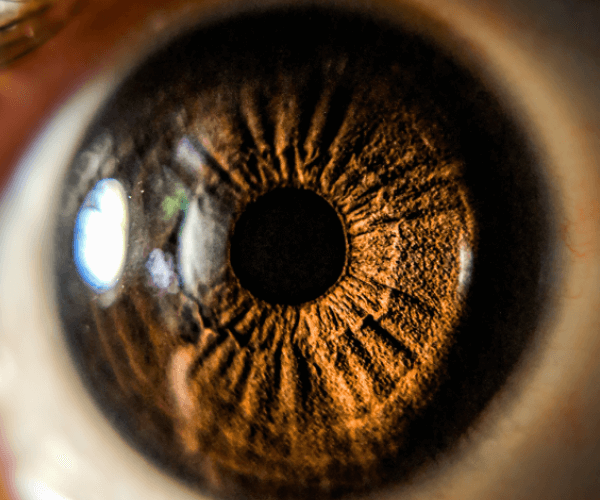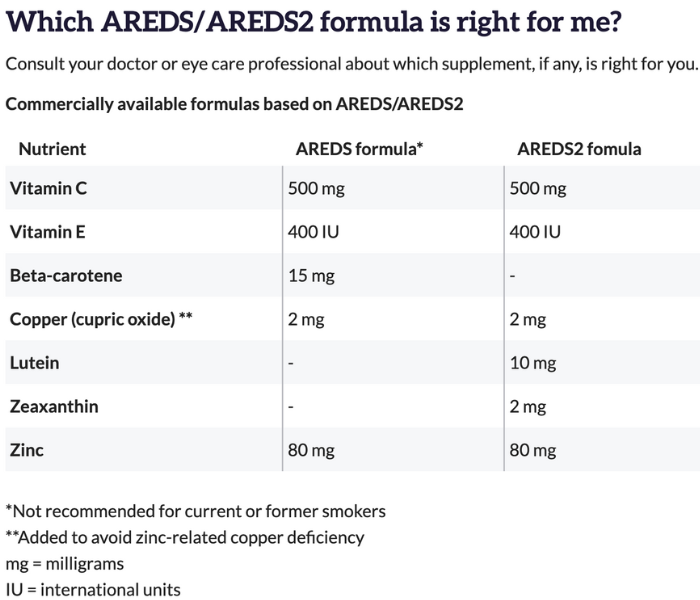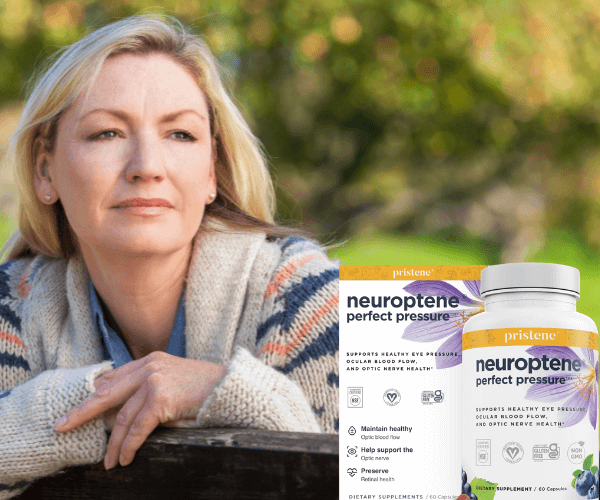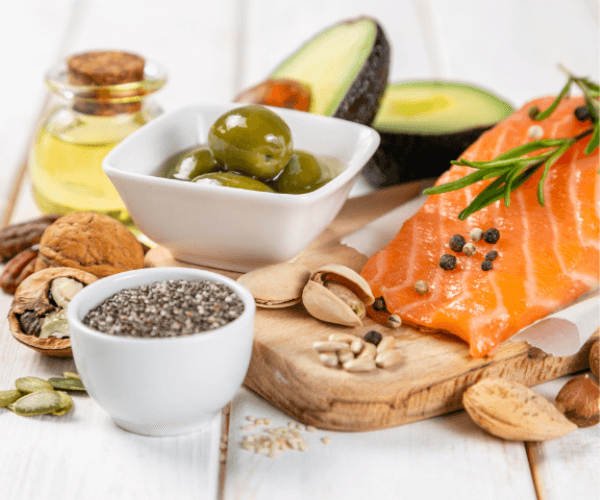Key Takeaways:
- Vitamins and minerals play a crucial role in preventing and managing macular degeneration.
- Specific vitamins like Vitamin C, E, and zinc have shown positive results in clinical trials.
- A balanced diet rich in colorful fruits and vegetables can support eye health and reduce the risk of vision loss.
- My personal experience with Eyecheck's Neuroptene Perfect Pressure & Macutene Protect
What is the Macula?
The macula is a small, central area of the retina in the eye that is responsible for detailed central vision. It is crucial for activities that require sharp vision, such as reading, driving, and recognizing faces.
The macula contains a high concentration of photoreceptor cells, particularly cones, which are responsible for color vision and fine detail.

The health of the macula is vital for maintaining clear and precise vision, and conditions affecting it, such as macular degeneration, can lead to significant visual impairment.
Understanding Macular Degeneration
Macular degeneration, especially age-related macular degeneration (AMD), is a prevalent eye condition affecting central vision, primarily in older adults.
There are two main types of AMD: dry and wet.
Dry AMD is more common, affecting about 80% of those with age-related macular degeneration, and progresses slowly over several years as the macula's light-sensitive cells thin and die.
Wet AMD is less common but leads to rapid vision loss due to unstable blood vessels growing in the macula, which leak blood and fluid into the retina, distorting vision.
Understanding these types is crucial for managing and preventing further eye health deterioration.

AMD typically affects individuals over 50, causing the macula, the retina's central part responsible for sharp vision, to deteriorate.
Symptoms include blurred vision, difficulty recognizing faces, and a dark or empty area in the central vision.
Risk factors include aging, genetics, smoking, high blood pressure, and obesity.
While there is no cure for AMD, treatments can slow its progression and manage symptoms.
These include lifestyle changes, such as quitting smoking and maintaining a healthy diet, and medical treatments like anti-VEGF injections for wet AMD.
Regular eye exams are crucial for early detection and management.
Clinical Trials and Positive Results
Numerous clinical trials have demonstrated the effectiveness of specific vitamins and minerals in managing macular degeneration.
The AREDS trials, notably, revealed that a combination of vitamins C, E, zinc, and copper can slow the progression of intermediate dry macular degeneration to more advanced stages.
These findings highlight the importance of proactive eye health management.
By incorporating recommended supplements and maintaining a balanced diet, individuals can significantly reduce their risk of late-stage AMD and preserve their vision.

The Age-Related Eye Disease Studies (AREDS and AREDS2) by the National Eye Institute examined the impact of nutritional supplements on age-related macular degeneration (AMD) and cataracts.
The original AREDS study found that a specific high-dose formulation of antioxidants and zinc could reduce the risk of advanced AMD by about 25% in high-risk individuals.
AREDS2 refined this formula by testing omega-3 fatty acids and substituting lutein and zeaxanthin for beta-carotene.
While omega-3s did not further reduce AMD progression, lutein and zeaxanthin proved to be safer alternatives to beta-carotene, which is linked to increased lung cancer risk in smokers.
Supplements containing the recommended AREDS2 formula in the chart* above (right column), are beneficial for individuals with intermediate or advanced AMD in one eye, helping to slow disease progression. (*Source: NIH National Eye Institute)
Personal Recommendation: Macular Degeneration Supplements
As someone dealing with age-related macular degeneration (AMD), I understand the worry that comes with it. The fear of not being able to see loved ones or read is overwhelming.
However, my recent eye exam was reassuring, thanks to two of the best eye care vitamins from Eyecheck: Macutene Protect and Neuroptene Perfect Pressure.
These vitamin supplements have been crucial in helping me maintain my eye health and slow further degeneration.
Additionally, these products have been featured in major media outlets such as Retinal Physician, NBC News, CBS, and USA Today.

Macutene Protect
Supports Optimal Macular and Retinal Health. In particular supports the Macula which is responsible for sharp, detailed central vision and color vision.
Exclusive Insights:
· AREDS2 Formula: Macutene Protect contains the exact combination of vitamins and minerals recommended by the AREDS2 study, including vitamin C, vitamin E, zinc, and copper.
· Lutein and Zeaxanthin: These powerful carotenoids are included in Macutene Protect to help filter harmful blue light and protect the eyes from oxidative
· No Beta-Carotene: Unlike some other eye supplements, Macutene Protect does not contain beta-carotene, making it a safer option for smokers and those at risk of lung cancer.
· Easy-to-Take Capsules: Macutene Protect comes in easy-to-swallow capsules, making it simple to incorporate into your daily routine.
For those at risk of or experiencing macular degeneration, certain supplements can help.
The AREDS trials suggest a mix of vitamins and minerals, like Vitamin C, Vitamin E, zinc, and copper, to slow AMD's progression.

Neuroptene Perfect Pressure
Support for Optic Nerve and Healthy Intraocular (Eye) Pressure. Also provides benefits for blue light protection, and mental performance.
Exclusive Insights:
· Powerful Antioxidants: Neuroptene Perfect Pressure contains a potent blend of antioxidants, including vitamin C and vitamin E, which help protect the eyes from oxidative stress and
· Essential Minerals: This supplement includes zinc and copper, which are crucial for maintaining healthy vision and preventing AMD progression.
· Lutein and Zeaxanthin: These carotenoids are essential for eye health and have been shown to reduce the risk of AMD. They act as natural filters, protecting the eyes from harmful blue light and oxidative
· Omega-3 Fatty Acids: Neuroptene Perfect Pressure also contains omega-3 fatty acids, which support overall eye health and reduce inflammation.
It's essential to talk to a primary care doctor before starting any supplements, especially if you're on other medications, as some vitamins can interact with them.
The Role of Vitamins in Eye Health
Vitamins and minerals are essential for maintaining eye health and preventing macular degeneration.
The Age-Related Eye Disease Study (AREDS) conducted by the National Eye Institute found that certain vitamins and minerals can slow the progression of AMD. These include Vitamin C, Vitamin E, zinc, and copper.
Vitamin C, also known as ascorbic acid, is an antioxidant that helps protect the eyes from
Vitamin E, another antioxidant, works alongside Vitamin C to combat oxidative stress in the eyes.
Zinc supplements, often combined with copper to prevent copper deficiency, are also recommended to support retinal health.
The Power of Lutein and Zeaxanthin
Lutein and zeaxanthin are two carotenoids found in the retina that play a significant role in eye health. These antioxidants help filter harmful blue light and protect the eyes from oxidative
Studies have shown that a diet rich in lutein and zeaxanthin can reduce the risk of developing macular degeneration.
Incorporating foods like leafy greens, colorful fruits, and vegetables into your diet can boost your intake of these vital nutrients.
Spinach, kale, and corn are excellent sources of lutein and zeaxanthin, making them a staple in any eye-healthy diet.
Omega Fatty Acids and Eye Health
Omega fatty acids, particularly those found in fish oil, have been linked to a reduced risk of advanced macular degeneration.
These healthy fats support overall eye health by reducing inflammation and promoting proper cell function.
Including fish like salmon, mackerel, and sardines in your diet can provide these beneficial omega fatty acids.

Clinical trials have shown that omega fatty acids can be particularly beneficial for individuals with a family history of AMD.
Regular consumption of fish oil supplements or omega-rich foods can help maintain eye health and prevent the progression of AMD.
The Importance of a Balanced Diet
A balanced diet rich in vitamins and minerals is essential for preventing macular degeneration.
Consuming a variety of colorful fruits, dark green leafy vegetables, whole grains, and lean proteins can provide the nutrients needed to support eye health.
Foods like carrots, sweet potatoes, and citrus fruits are packed with antioxidants that protect the eyes.

In addition to vitamins and minerals, incorporating healthy fats like olive oil into your diet can further enhance eye health. Olive oil contains antioxidants and anti-inflammatory properties that support overall well-being and reduce the risk of vision loss.
The Impact of Lifestyle on Eye Health
Lifestyle choices play a significant role in maintaining eye health and preventing macular degeneration.
Regular exercise, avoiding smoking, and protecting your eyes from excessive sunlight can all contribute to reducing the risk of AMD.
Additionally, managing other health conditions like hypertension and diabetes is vital for preventing vision loss. These conditions can exacerbate eye problems, so maintaining overall health is key to preserving your sight.
The Role of Antioxidants in Preventing Vision Loss
Antioxidants are crucial in protecting the eyes from oxidative stress and
Vitamins C and E, along with beta carotene, are powerful antioxidants that support eye health.
Incorporating antioxidant-rich foods into your diet can provide these protective benefits. Berries, nuts, and seeds are excellent sources of antioxidants that can help maintain healthy vision and prevent the progression of AMD.
Final Thoughts
Macular degeneration is a serious eye condition that can lead to significant vision loss if not managed properly.
However, by understanding the role of vitamins and minerals in eye health, individuals can take proactive steps to prevent and manage this condition.
A balanced diet rich in antioxidants, omega fatty acids, and specific vitamins can support retinal health and reduce the risk of AMD progression.
Consulting with a healthcare provider and considering recommended supplements can further enhance eye health and preserve vision for years to come.
FAQ
Q1: What are the best vitamins for macular degeneration?
A1: The best tablets for macular degeneration include Vitamin C, Vitamin E, zinc, and copper. These nutrients have been shown to slow the progression of AMD and support overall eye health.
Q2: Can a balanced diet prevent macular degeneration?
A2: Yes, a balanced diet rich in colorful fruits, vegetables, and omega fatty acids can help prevent further macular degeneration. These foods provide essential nutrients that support retinal health and reduce the risk of vision loss.
Q3: Should I take supplements for macular degeneration?
A3: It is advisable to consult with a healthcare provider before starting any supplement regimen. The AREDS trials recommend specific supplements for those at risk of AMD, but professional guidance is essential to avoid interactions with other medications.

Are you looking for the best products? We've got you covered! Our editors independently selected each item on this list. EisonReports may collect a share of sales or other compensation (at no cost to you) from links found within these pages if you choose to buy something (that's how we stay in business). Reviews have been edited for length and clarity; enjoy discovering products to live life better!









